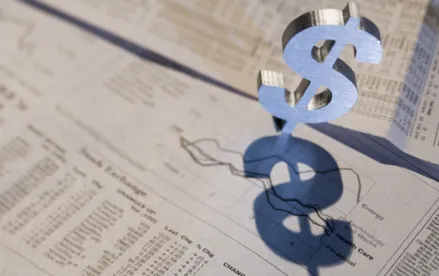The Securities and Exchange Commission (SEC) recently approved the temporary relief proposed by both the Nasdaq Stock Market (NASDAQ) and the New York Stock Exchange (NYSE) relating to compliance with the minimum price and minimum market capitalization continued listing standards of each exchange. In short, the cure period for regaining compliance with these standards is tolled through June 30, 2020. Listed companies that either (1) were in a cure period at the time the temporary relief took effect or (2) receive a notice of noncompliance after the temporary relief took effect and, in either case, have not regained compliance by June 30, 2020, will have their cure period either restart or begin on July 1, 2020. However, note that listed companies that receive a notice of noncompliance during the relevant toll period will still have to issue a press release, file a Form 8-K with the SEC, and, for NYSE-listed companies, submit a compliance plan to the NYSE.
NASDAQ Temporary Relief
On April 17, 2020, NASDAQ received approval from the SEC to temporarily toll compliance with the $1.00 minimum bid price, as well as the applicable market value continued listing standard, through June 30, 2020 (NASDAQ tolling period).
NASDAQ Rule 5450 requires Global Select Market- and Global Market NASDAQ-listed companies to maintain a minimum $1.00 bid price for primary equity securities and either a $5 million or $15 million market value of publicly held shares (depending on whether the Equity, Market Value, or Total Assets/Total Revenue standards are used as defined in the NASDAQ Rules). In addition, NASDAQ Rule 5450 requires Capital Market NASDAQ-listed companies to maintain a $1.00 minimum bid price for primary equity securities and a $1 million market value of publicly held shares.
The failure to meet these continued listing standards for a period of 30 consecutive business days results in noncompliance, after which NASDAQ will promptly notify the company of such noncompliance. Typically, noncompliance with these continued listing standards will subject a NASDAQ-listed company to a cure period of 180 days, commencing on the date such company receives the notice of noncompliance from NASDAQ. However, with this relief, the cure period is paused[1] during the NASDAQ tolling period, as described in Appendix A below.
During the NASDAQ tolling period, NASDAQ will continue to identify and notify companies of noncompliance. In addition, during this period, NASDAQ-listed companies receiving a notice of noncompliance will continue to be required to issue a press release and file an Item 3.01(a) Form 8-K with the SEC within four business days of receipt of the notice.
NYSE Temporary Relief
As we previously reported, the NYSE previously received approval from the SEC to temporarily suspend, effective March 19, 2020, through June 30, 2020, certain continued listing standards. On April 21, 2020, the NYSE received additional approval from the SEC to temporarily toll compliance with the $1.00 minimum price and the $50 million stockholders’ equity/average market capitalization continued listing standards through June 30, 2020 (NYSE tolling period).
NYSE Rule 802.01C requires an NYSE-listed company to maintain an average closing price of its stock of at least $1.00 over a consecutive 30-trading-day period. After falling below such pricing standard and receiving a notice of noncompliance from the NYSE, a company must bring its share price and average share price back above $1.00 within six months following receipt of the notice of noncompliance (or longer in certain situations where corporate action to cure the noncompliance requires shareholder approval). In addition, NYSE Rule 802.01B requires an NYSE-listed company to maintain stockholders’ equity of at least $50 million or an average global market capitalization over a consecutive 30-trading-day period of at least $50 million. After falling below such stockholders’ equity/market capitalization standard and receiving a notice of noncompliance from the NYSE, companies are subject to a maximum 18-month cure period to rectify the noncompliance. However, with this relief, the cure period is paused during the NYSE tolling period, as described in Appendix A.
During the NYSE tolling period, the NYSE will continue to identify and notify companies of noncompliance. In addition, during the NYSE tolling period, the NYSE will continue to add a “.BC” indicator to noncompliant companies’ tickers and will continue to list noncompliant companies on its website. Furthermore, after receipt of notice of noncompliance, NYSE-listed companies will still be required to submit a compliance plan to the NYSE within the applicable time period as required by NYSE rules, issue a press release, and file an Item 3.01(a) Form 8-K with the SEC within four business days of receipt of the notice of noncompliance.
An updated chart of the NYSE quantitative continued listing standards, annotated to reflect all relief and informal guidance to date from the NYSE, can be found below in Appendix B.
If you believe your company may have, or will have in the near future, a potential compliance issue with exchange rules or continued listing standards, or your company is currently in a cure period for falling below an exchange’s continued listing standards, we recommend that you promptly contact your legal and finance teams to discuss your options.
Appendix A
Effects of Tolling on NASDAQ and NYSE Cure Periods
|
Timing of Noncompliance |
Revised Cure Period |
|
Newly Identified Noncompliant Company Listed company is notified by the exchange of noncompliance after the temporary relief took effect and did not regain compliance prior to June 30, 2020 |
Cure Period Commences on July 1, 2020 NASDAQ-Listed Company: July 1, 2020, to December 28, 2020 NYSE-Listed Company:
|
|
Previously Identified Noncompliant Company Listed company was in a pending cure period when the temporary relief took effect and did not regain compliance prior to June 30, 2020 |
Cure Period Recommences on July 1, 2020 NASDAQ-Listed Company:
NYSE-Listed Company:
|
Appendix B
NYSE Quantitative Listing Standards
(annotated to reflect temporary relief)
|
Standard |
Cure Period |
Notes |
|
Rule 802.01C ≥$1.00 30-Trading-Day Average Price |
Six months, with cure permitted at any interim month end ** For newly identified noncompliant companies — cure period will not commence until July 1, 2020 ** For previously identified noncompliant companies currently in cure period — cure period is tolled and will recommence on July 1, 2020 |
Company has 10 days to respond to notice of noncompliance with plan accepted by NYSE; six-month cure period can be longer if corporate action to cure requires shareholder approval at next annual meeting |
|
Rule 802.01D Abnormally Low Share Price (≥$0.16/share) |
None — immediate suspension and delisting |
Minimum threshold for continued listing ** NYSE has indicated in informal discussions that it will review each company’s situation in the context of current market conditions on a case-by-case basis |
|
Rule 802.01B $50 Million 30-Trading-Day Average Market Cap or $50 Million Shareholder Equity |
Up to 18 months ** For newly identified noncompliant companies — cure period will not commence until July 1, 2020 ** For previously identified noncompliant companies currently in cure period — cure period is tolled and will recommence on July 1, 2020 |
Company has 45 days to respond to notice of noncompliance with plan accepted by NYSE; subject to quarterly monitoring and reassessment with regulatory committee |
|
Rule 802.01B $15 Million 30-Trading-Day Average Market Cap |
None — immediate suspension and delisting |
Minimum threshold for continued listing ** Temporarily suspended through June 30, 2020 |
[1] NASDAQ-listed companies that were in the hearings process will return to that process on July 1, 2020, at the same stage they were in when the NASDAQ tolling period began. If the company received a temporary exception from the hearings panel before the tolling began, it would receive the balance of the exception period beginning on July 1, 2020. However, a company in the hearings process would be delisted if the hearings panel had already determined to delist the company, even if the panel had not yet issued the written decision prior to the beginning of the NASDAQ tolling period.





 />i
/>i
